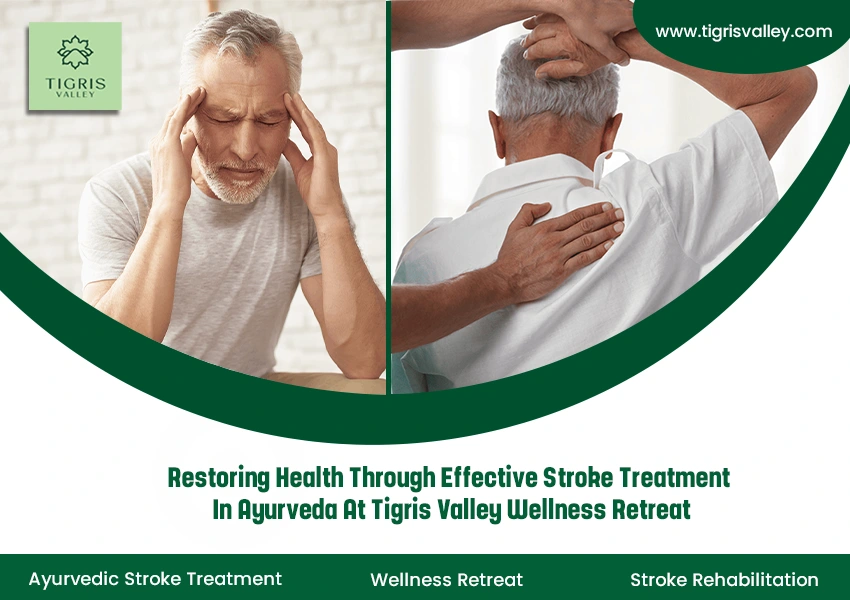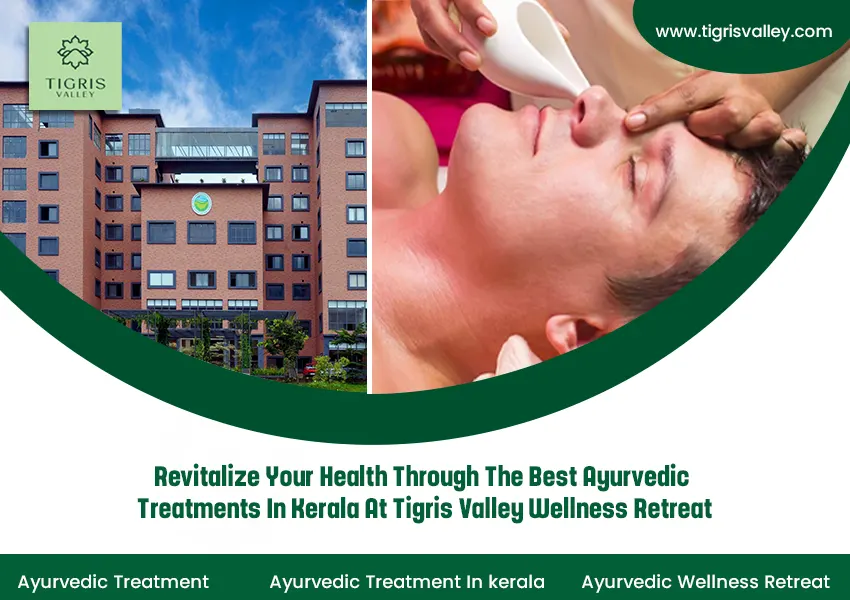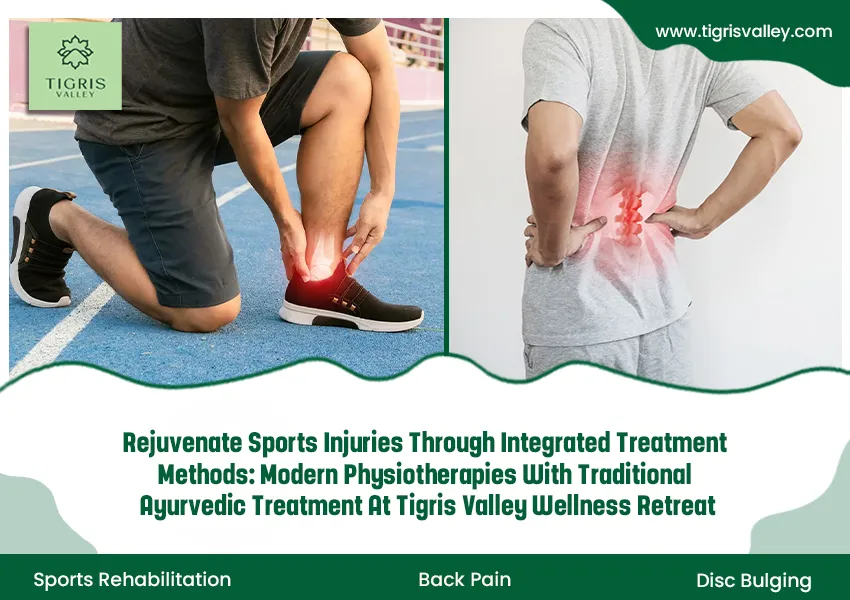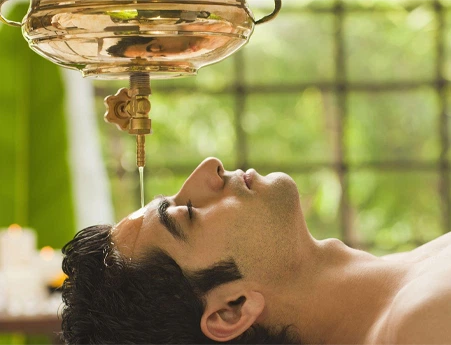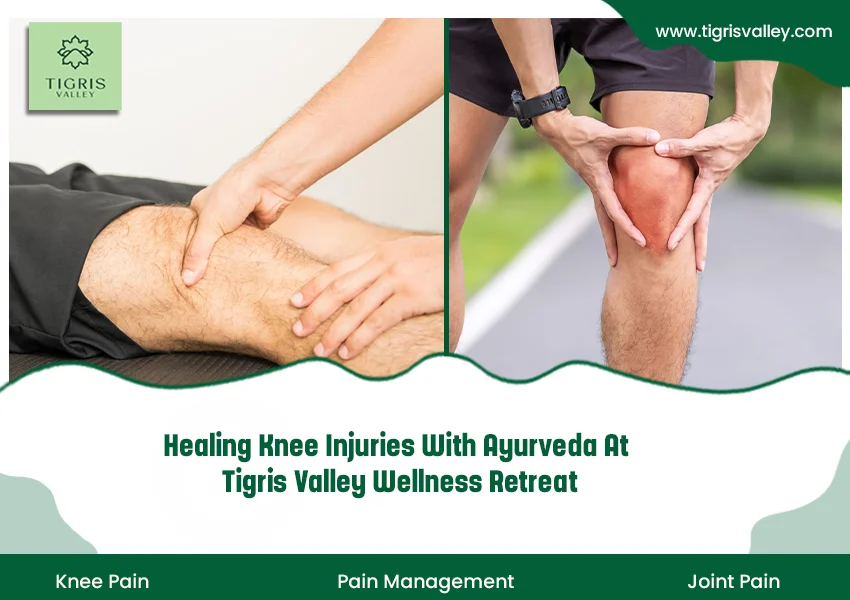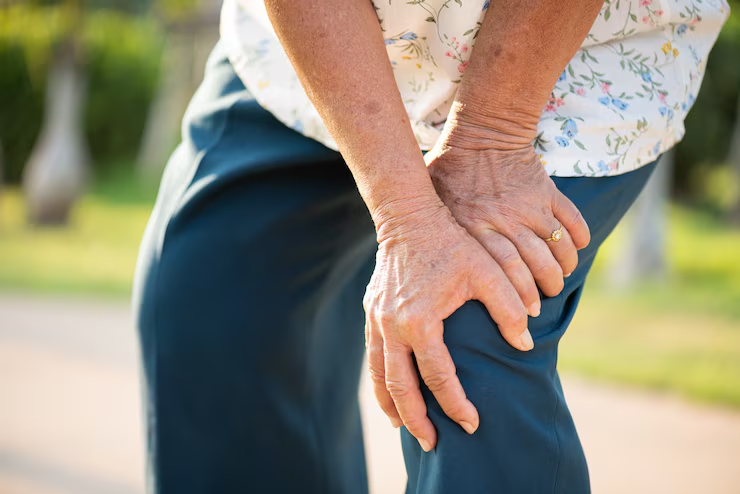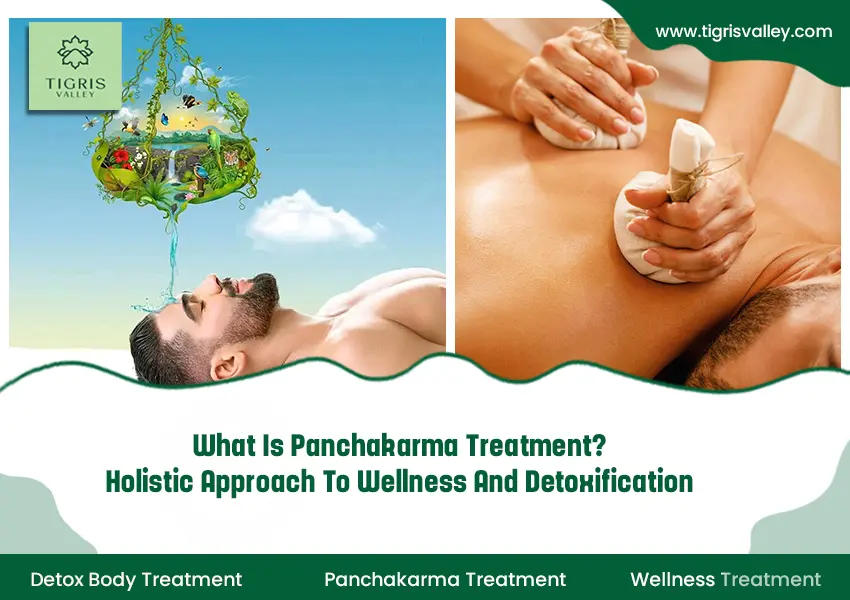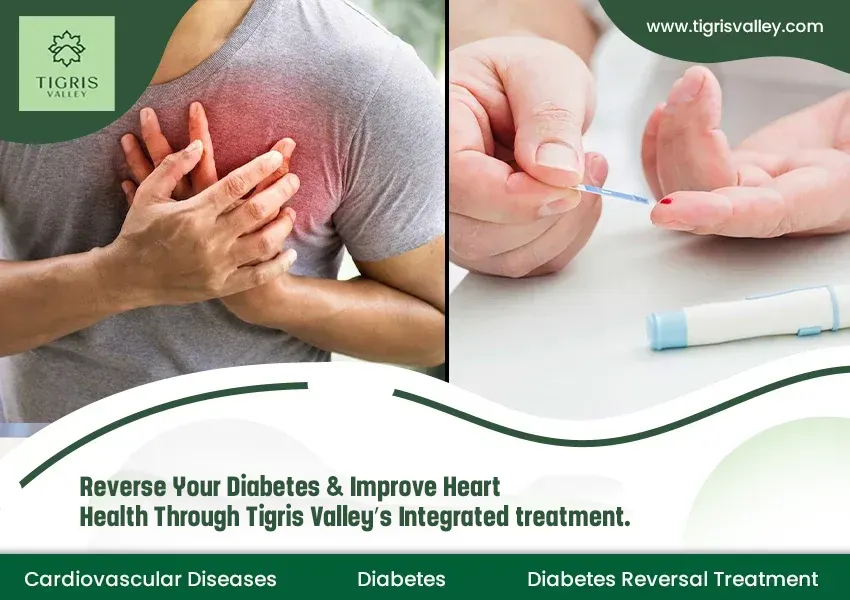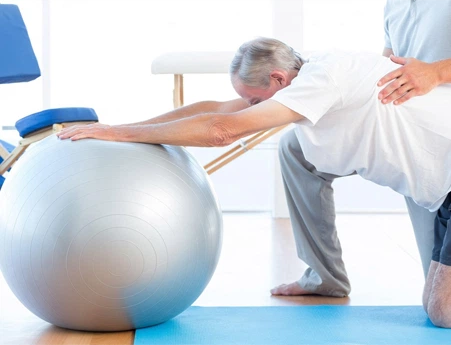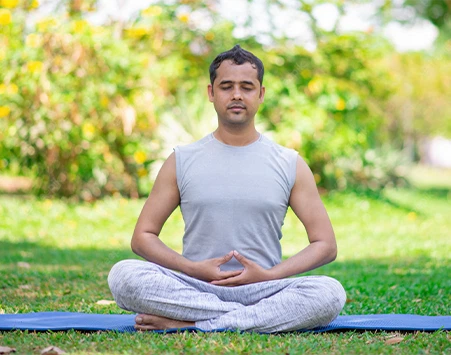Restoring Health through Effective Stroke Treatment in Ayurveda at Tigris Valley Wellness Retreat
Stroke recovery can be a challenging journey, often requiring an integrated strategy for healing. A stroke occurs when blood flow to a part of the brain is interrupted or reduced, preventing brain tissue from getting the necessary oxygen and nutrients. This can lead to brain cell death and can result in lasting neurological damage. Stroke can affect anyone, but certain factors increase the risk. Age is a significant factor, with older adults being more at risk. Men generally face higher risks at younger ages, while women are affected more as they age. Medical conditions like high blood pressure, diabetes, and heart disease, along with lifestyle choices such as smoking, obesity, and physical inactivity, further increase the risk. Unhealthy diets and excessive alcohol consumption also contribute to higher risk.
Certain types of working employees may be at higher risk for stroke due to various factors related to their job environments, lifestyles, and stress levels. High-stress jobs such as finance, IT, and healthcare increase anxiety and blood pressure. Shift work disrupts sleep patterns, and Skilled physical labor can lead to injury or strain. Transportation workers face inactive lifestyles due to long hours of driving. Understanding these factors is crucial for prevention and effective stroke management.
Tigris Valley, a premium Ayurvedic wellness hospital offers the best stroke rehabilitation in Ayurveda. Our rehabilitation program includes personalized assessments, customized nutrition plans, herbal remedies, and specialized physical therapies to promote recovery. We also prioritize mindfulness and stress reduction through meditation and social support. Our approach of Ayurveda for stroke rehabilitation aims to address not just physical healing but also mental and emotional wellness, guiding clients on their journey to renewed energy after a stroke.
What are the Main Types of Stroke?
Understanding the types of stroke is crucial because it enables people to recognize the specific symptoms associated with each type and to respond appropriately. Strokes can be categorized into three main types,
1. Ischemic Stroke: Ischemic stroke is the most common type (about 87% of cases). It occurs when a blood vessel supplying blood to the brain becomes obstructed, typically by a blood clot. There are two main subtypes of ischemic stroke.
Thrombotic Stroke: Caused by a clot that forms in an artery supplying blood to the brain, often due to atherosclerosis (narrowing of the arteries).
Embolic Stroke: Occurs when a blood clot forms elsewhere in the body (often the heart) and travels to the brain.
2. Hemorrhagic Stroke: Hemorrhagic stroke occurs when a blood vessel in the brain ruptures, resulting in bleeding either within the brain or in the surrounding areas. This type of stroke can be classified into two main categories.
Intracerebral Hemorrhage: Bleeding directly within the brain tissue, often caused by high blood pressure or vascular malformations.
Subarachnoid Hemorrhage: Bleeding occurs in the space between the brain and the membranes covering it, commonly due to the rupture of an aneurysm.
3. Transient Ischemic Attack (TIA): Sometimes called a “mini-stroke,” a TIA is caused by a temporary decrease in blood supply to part of the brain. Symptoms are similar to those of a stroke but typically last only a few minutes to hours and resolve on their own. TIAs are often warning signs for future strokes.
What are the Common Symptoms of a Stroke?
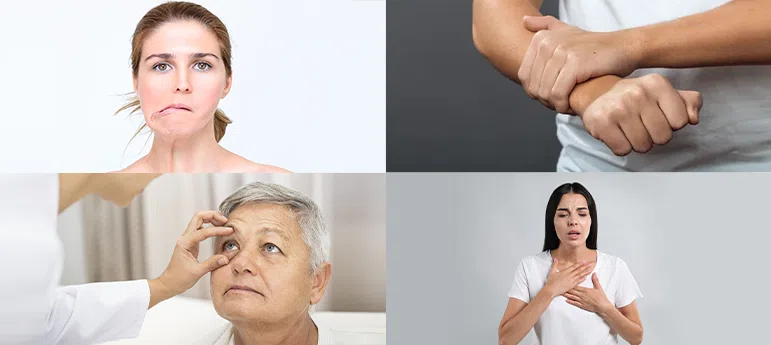
Recognizing the symptoms of a stroke is crucial for quick remedy. Common symptoms include:
Sudden numbness or weakness: This often affects one side of the body, including the face, arm, or leg.
Confusion: Difficulty speaking or understanding speech.
Vision problems: Sudden trouble seeing in one or both eyes.
Difficulty walking: Sudden dizziness, loss of balance, or coordination issues.
Severe headache: A sudden, severe headache with no known cause, particularly in hemorrhagic strokes.
How can diabetes affect stroke?

Diabetes significantly increases the risk of stroke due to several interrelated factors. High blood sugar levels can damage blood vessels and nerves leading to vascular disease, where arteries harden and narrow due to plaque buildup. This process restricts blood flow to the brain, enhancing ischemic strokes, which occur when the blood supply is obstructed. Additionally, diabetes is often associated with hypertension and high cholesterol, both of which further exacerbate vascular damage. The inflammatory processes linked to diabetes can also contribute to the formation of blood clots, increasing the risk of both ischemic and hemorrhagic strokes.
Furthermore, People with diabetes may experience complications like neuropathy which can impair their ability to recognize stroke symptoms promptly delaying treatment. Overall, diabetes management through proper medication, lifestyle changes, and regular monitoring is crucial to reducing the risk of stroke and promoting better vascular health. Tigris Valley Ayurvedic Treatment in Kerala offers balanced approaches for managing diabetes and stroke recovery, focusing on natural remedies, dietary adjustments, and lifestyle modifications.
Key dietary elements include whole foods, low-glycemic options, and beneficial spices like turmeric and cinnamon. Herbal remedies such as bitter gourd and ashwagandha can help regulate blood sugar. Additionally, stress relief treatments such as regular yoga and meditation promote physical health and mental wellness, while full-body detoxification methods like panchakarma can eliminate toxins. This treatment aims to restore balance and support the body’s natural healing processes. Personalized treatment plans from a qualified Ayurvedic practitioner are essential for effective management. Always consult our healthcare professionals before starting new treatments.
What are the best ayurvedic treatments for stroke recovery?
Ayurveda offers a holistic approach to stroke rehabilitation and aims to restore balance and promote overall wellness. Our treatments are designed to restore balance and promote healing through personalized care. By integrating traditional practices such as Panchakarma detoxification, herbal remedies, and tailored yoga therapies, we aim to support our clients on their journey to recovery. Our ayurvedic treatments focus to enhancing physical function, mental clarity, and overall well-being, ensuring a nurturing environment conducive to healing and rejuvenation.
Here are some common Ayurvedic treatments and practices that may aid in recovery:
1. Panchakarma Treatment for Stroke
Panchakarma treatment offers a balanced approach to stroke rehabilitation by focusing on full-body detox and rejuvenation. The panchakarma treatment for stroke begins with a thorough assessment by our experienced Ayurvedic practitioners, who tailor the treatment plan to the customer’s unique needs. The Snehana, or Oleation treatment where therapeutic oils are applied to nourish and prepare the body for deeper detoxification.
This is followed by Swedana, an herbal steam therapy that promotes sweating helping to eliminate impurities and enhance circulation. The core panchakarma treatments include Virechana (therapeutic purging) and Basti (medicated enemas), which are beneficial for removing toxins from the gastrointestinal tract and supporting overall health. In stroke therapy, these treatments can improve blood flow, reduce inflammation, and enhance neural function. Additionally, Nasya (nasal administration of herbal oils) may support cognitive function and reduce neurological imbalances. Together, these therapies create a supportive environment for physical and emotional rejuvenation, essential for effective Ayurvedic stroke treatment helping people to regain strength, mobility, and Energy.

Throughout the ayurvedic panchakarma treatment in Kerala, patients are also encouraged to follow a specialized diet that supports healing and nourishes the body. This holistic approach not only aids in physical recovery but also addresses emotional and mental well-being, promoting overall resilience. With the calming environment of Tigris Valley Wellness Hospital, patients can immerse themselves in restorative practices supporting relaxation and empowerment on their journey to recovery.
2. Herbal Remedies for Stroke Recovery
Several herbs have gathered attention for their potential benefits in supporting neurological health and recovery. Tigris Valley Premium Wellness Hospital offers herbal remedies to support stroke recovery, focusing on natural solutions to enhance healing. Our expert team customizes treatments to individual needs, promoting overall well-being during the recovery process. Brahmi is widely recognized for its effectiveness in improving cognitive function, memory, and concentration. Research suggests that Brahmi may promote neuroplasticity and protect against oxidative stress, positioning it as a vital support for cognitive resilience and recovery from neurological challenges. Similarly, Ashwagandha is highly regarded for its adaptogenic properties helping the body manage stress effectively. By reducing cortisol levels and promoting a sense of calm, Ashwagandha not only enhances overall energy levels but also supports mental clarity and focus which can be crucial during periods of neurological strain.
Furthermore, Turmeric primarily due to its active compound curcumin, is recognized for its potent anti-inflammatory properties. This inflammation modulation can play a significant role in neurological health by potentially reducing neuroinflammation, which is often implicated in various cognitive disorders. Together, these herbs create a synergistic approach to fostering a healthier brain environment, supporting both cognitive enhancement and recovery from neurological challenges. Their combined effects may contribute to improved mood, better cognitive performance, and a greater ability to cope with stress, ultimately promoting overall mental wellness.
3. Dietary Modifications for Stroke Rehabilitation
Dietary modifications can play a crucial role in preventing and recovering from a stroke. Incorporating a variety of colorful fruits and vegetables rich in antioxidants, vitamins, and minerals is essential, as they help reduce inflammation and support brain health. Whole grains, such as brown rice and quinoa, should be prioritized over refined grains to provide vital nutrients and fiber that promote heart health. Including sources of omega-3 fatty acids, like fatty fish, flaxseeds, and walnuts, can also help lower inflammation and stroke risk. It’s important to limit saturated and trans fats, opting instead for healthy fats from avocados, nuts, seeds, and olive oil. Monitoring sodium intake by avoiding processed foods and using herbs for flavor can help manage blood pressure, while moderate alcohol consumption may offer cardiovascular benefits. Staying hydrated is vital for overall health, and reducing added sugars can mitigate obesity and other stroke risk factors. Emphasizing plant-based proteins like beans and lentils over red meat and considering a Mediterranean diet rich in fruits, vegetables, whole grains, and lean proteins can further support health. Overall, these dietary changes not only aid in recovery but also contribute to long-term well-being, making them essential for stroke management. Always consult with a healthcare provider or nutritionist for tailored advice.
Yoga and Meditation for Stroke Management
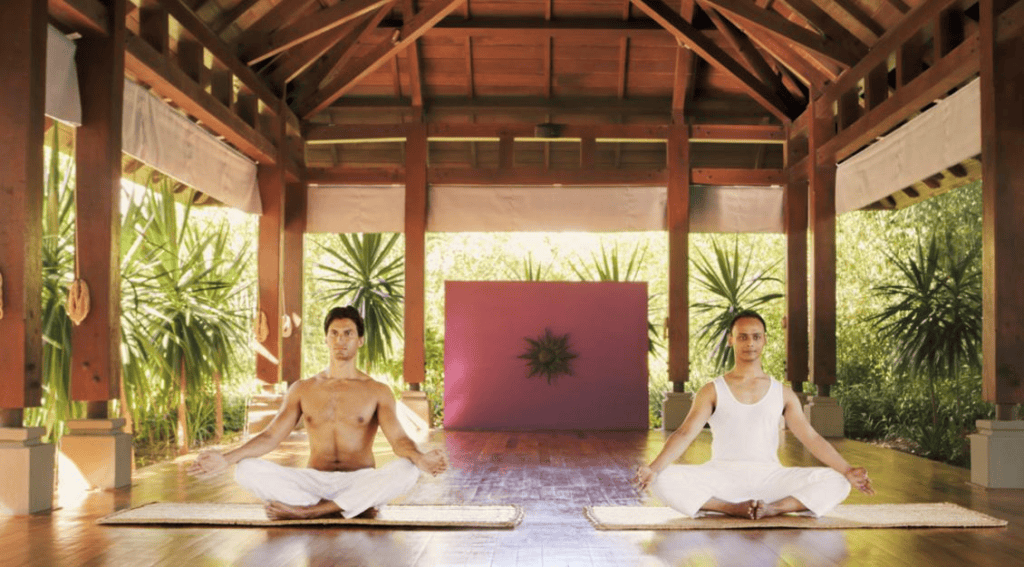
Yoga and meditation can be beneficial components of stroke therapy and recovery, promoting both physical and mental well-being. These practices focus on enhancing flexibility, strength, and balance, which can help people regain mobility and coordination after a stroke. Gentle yoga poses customized to the person’s abilities can improve physical function, reduce stiffness, and promote blood circulation. Additionally, yoga encourages mindful breathing and relaxation, which can alleviate stress and anxiety common challenges following a stroke.
Meditation, on the other hand, can enhance mental clarity and emotional resilience. Mindfulness meditation helps people stay present and reduce negative thoughts, which can aid in emotional healing during recovery. Regular meditation practice has been shown to lower blood pressure, improve mood, and enhance overall cognitive function, supporting brain health.
Incorporating these practices into a rehabilitation program can promote a sense of empowerment and encourage a holistic approach to recovery. Stroke survivors need to work with healthcare providers or certified instructors who can guide them through appropriate exercises and techniques, ensuring safety and effectiveness. Overall, yoga and meditation can serve as valuable tools for improving quality of life and promoting a smoother recovery process after a stroke.
Lifestyle Changes for Stroke Rehabilitation
Ayurveda offers a holistic approach to stroke treatment, emphasizing lifestyle modifications that promote recovery and prevent future incidents. A balanced diet rich in whole, fresh foods is essential; incorporating plenty of fruits, vegetables, whole grains, and healthy fats like ghee and nuts can support overall health. Anti-inflammatory foods such as turmeric and ginger are particularly beneficial for circulation. Staying well-hydrated with warm water and herbal teas is crucial for maintaining bodily functions. Establishing a consistent daily routine (Dinacharya) that includes regular meal times, sleep schedules, and gentle exercises like yoga and walking can help stabilize the body’s rhythms and enhance recovery.
Stress relief treatments, including meditation and deep breathing, are important for calming the mind and promoting emotional healing. Prioritizing restful sleep by creating a calming nighttime routine is vital, as quality sleep supports restorative processes in the body. Additionally, incorporating Ayurvedic herbs like Brahmi and Ashwagandha, under the guidance of a practitioner, can offer neuroprotective benefits. Limiting stimulants such as caffeine and alcohol, practicing mindful eating, and engaging with supportive communities are also key components of this approach. By integrating these lifestyle modifications, stroke survivors can foster both physical healing and emotional resilience, significantly enhancing their recovery journey.
The Role of Nutrition in Stroke Recovery
Nutrition plays a vital role in stroke recovery, significantly influencing both physical healing and overall well-being. At Tigris Valley Wellness Retreat, Our expert nutritionists recommend personalized dietary plans customized to support maximum recovery and overall health. This includes integrating nutrient-rich foods that promote brain health, reduce inflammation, and enhance overall wellness. Our approach includes personalized meal plans, guidance on essential vitamins and minerals, and strategies to improve digestion and metabolism.
A well-balanced diet can help reduce inflammation, support brain health, and promote cardiovascular function, all essential for recovery. Consuming a variety of fruits and vegetables rich in antioxidants can help combat oxidative stress, while whole grains provide necessary fiber and nutrients that support heart health. Incorporating healthy fats, such as those found in fatty fish, avocados, and nuts, is crucial for reducing inflammation and improving cholesterol levels.
Hydration is also important, as it aids in maintaining optimal bodily functions and supporting recovery processes. Moreover, certain nutrients, like omega-3 fatty acids, vitamins B, C, D, and E, and minerals like magnesium and potassium, play specific roles in brain health and recovery. A diet low in saturated fats, trans fats, and sodium can help manage blood pressure and reduce the risk of future strokes.

Mindful eating practices, focusing on portion control and balanced meals, can further enhance recovery by ensuring that the body receives adequate nutrition without overindulgence. Ultimately, working with healthcare professionals or nutritionists to create a personalized meal plan can help stroke survivors optimize their dietary choices, support their stroke rehabilitation efforts, and promote long-term health.
What Are Effective Ways to Support a Stroke Survivor?
Supporting people after a stroke requires patience, empathy, and practical assistance. Begin by encouraging open communication, allowing them to express their feelings and concerns, which can help alleviate anxiety and frustration. Establish a structured routine that includes rehabilitation exercises, medication schedules, and daily activities to provide a sense of stability. Offer assistance with physical tasks, such as mobility and personal care, while promoting independence where possible. Be attentive to their emotional needs; many stroke survivors experience depression or mood swings, so providing a listening ear and being supportive can be incredibly beneficial. Engage them in social activities to help maintain connections with friends and family, which can boost their morale and emotional well-being. Educate yourself about stroke recovery and rehabilitation processes to better understand their challenges and needs. Lastly, encourage them to pursue hobbies or interests that they enjoy, adapting activities as necessary to accommodate their abilities. Your unwavering support can make a significant difference in their recovery journey and overall quality of life.
Tigris Valley, a premium post-stroke treatment center in Kerala offers an integrated and personalized approach to recovery that emphasizes the interconnectedness of the body, mind, and spirit. By combining traditional Ayurvedic practices such as personalized dietary plans, herbal remedies, yoga, and mindfulness techniques patients can experience enhanced healing and improved quality of life. The peaceful environment at Tigris Valley Wellness Retreat further supports this journey, allowing persons to focus on their well-being in a calm setting. Through a combination of expert guidance and a commitment to natural healing, We provide a unique opportunity for stroke survivors to reclaim their health and vitality, encouraging resilience and empowering them on their path to recovery.

